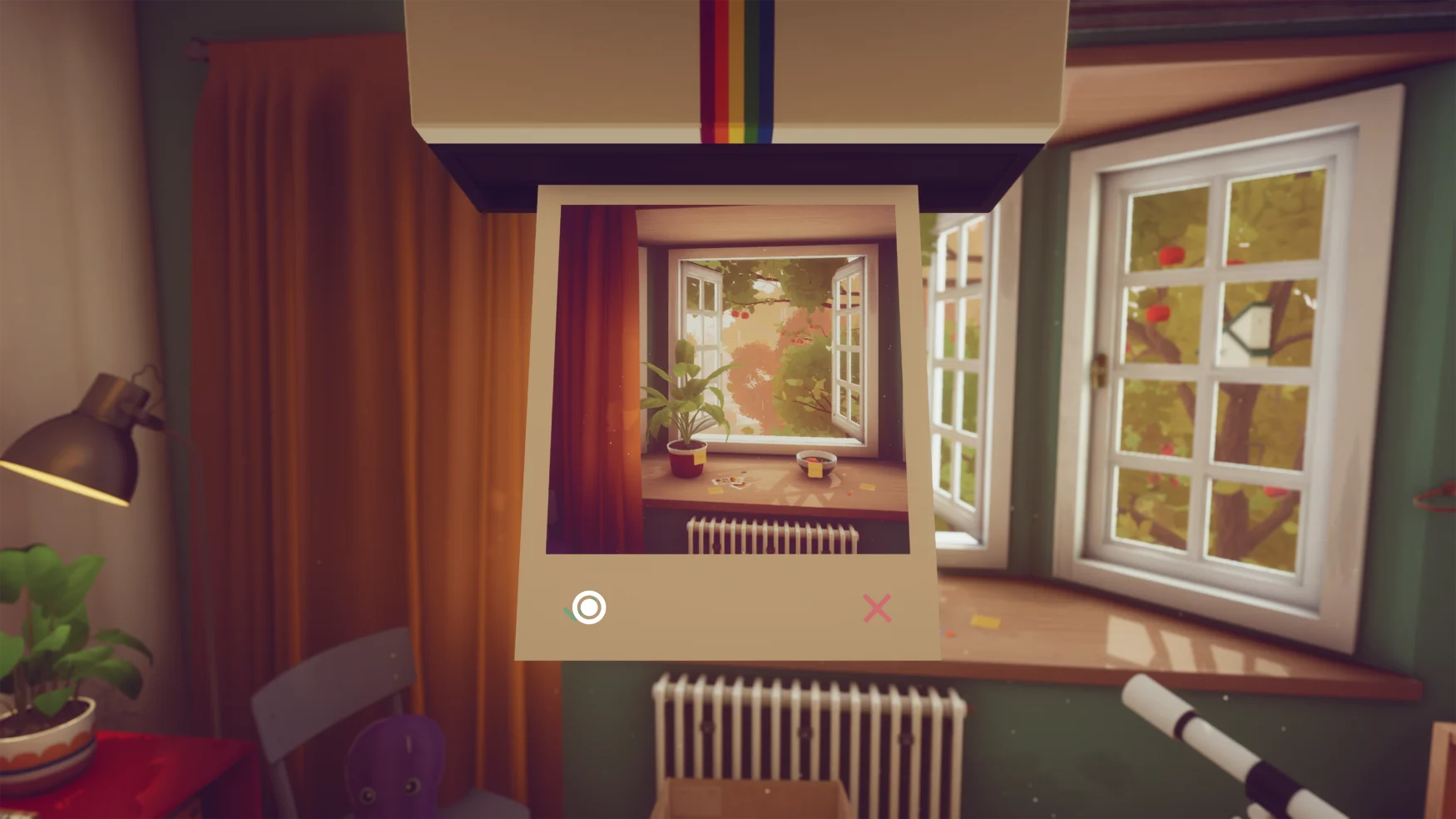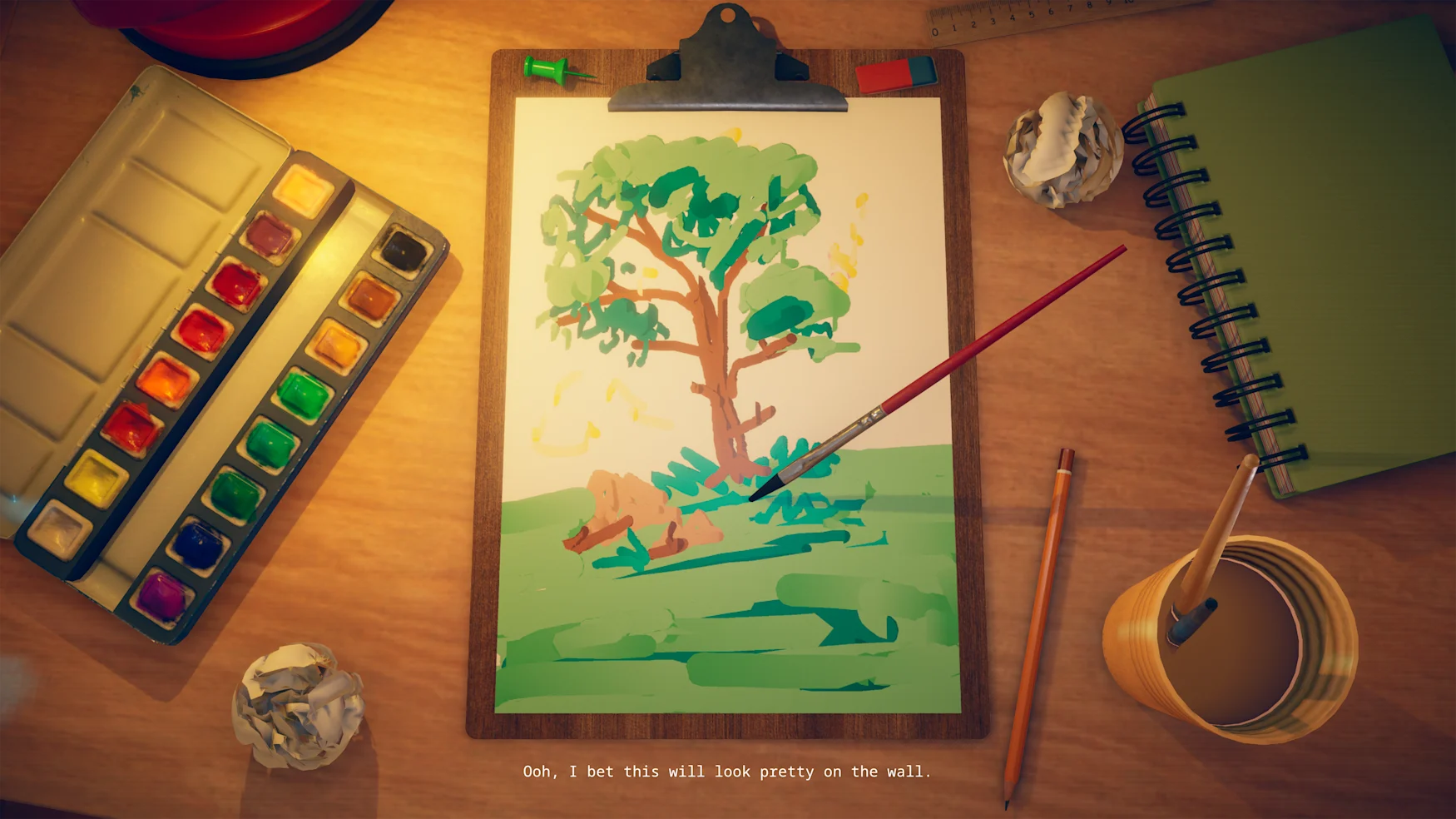[ad_1]
Warm afternoon sunlight streams through the bay windows. A tree beyond the panes throws shadows across a plush rug, partially covered by an open cardboard box. The bedroom is compact and bright, and it’s filled with the remnants of youth: books and family photos line the walls, and the desk drawers are stuffed with drawing paper and school supplies. A skateboard pokes out from under the bed and stuffed animals are tucked into the room’s spare spaces. The record player spins soothing, lo-fi music, and you have a long, lazy afternoon to sit in this room, box up its memories, and move on.
Simpler Times provides this peaceful environment and invites players to get lost in it. There’s a story to unravel just by picking up objects, interacting with them and putting them away for good — the protagonist, Taina, is moving on from her childhood home, onto the next phase of her life, and her past and future come into focus as players explore her bedroom.
Even if Simpler Times’ idyllic setting doesn’t accurately reflect your own childhood bedroom, the developers at Transylvania studio stoneskip have designed a supremely comforting space. Everything about Taina’s room feels welcoming and safe: safe to explore, safe to get lost in, safe to fall fully into your thoughts.
Simpler Times is a first-person game with an emphasis on music and mood. The soundtrack is a series of original, lo-fi pieces that players control on the room’s record player, in a ritual familiar to vinyl owners. Each album runs for a set amount of time before it has to be reset or swapped out: Move the needle to the side, lift the record and carefully put it away, and then reverse the process with a new album. It’s a series of intentional actions designed to ground players in the moment, highlighting the beauty of anticipation and slow gestures. It’s an effective sequence and emblematic of the game’s pace overall.

iam8bit
Simpler Times’ soundtrack is composed by George Pandrea and it includes moments of lyrical poetry written and performed by Taina’s voice actor, Maeve Kroeger. There are other static points of interaction around the bedroom, including an instant camera and a scrapbook that provides backstory and suggests areas to clean next, advancing the larger narrative. There is no fail state in Simpler Times and no clock on any action. Dialogue floats in and and out as players explore, the rolling music encouraging reflection as Taina’s story passively unfolds.
On the surface, Simpler Times sounds similar to Gone Home, the original indie “walking simulator,” but this comparison isn’t quite accurate. For starters, there’s no walking in Simpler Times; the bedroom is small and players navigate by looking around and clicking on points of interaction. The game itself was conceived during the pandemic, when developers found themselves trapped in small spaces, with ample time for self-reflection. Simpler Times is a contained, meditative game that actually feels closer to a calming, repetitive experience like Threes than a narrative adventure.

iam8bit
The full game takes place over four seasons, in four time periods of Taina’s life, but the demo I played at Summer Game Fest was an introduction to her bedroom in present-day, just as she’s starting to pack up. The demo left me relaxed and intrigued, and it was a welcome, cozy break from the chaos of a large (but not, like, E3-large) video game event.
Simpler Times is being published by iam8bit and it’s due to hit Steam in 2024.
[ad_2]
Source link
